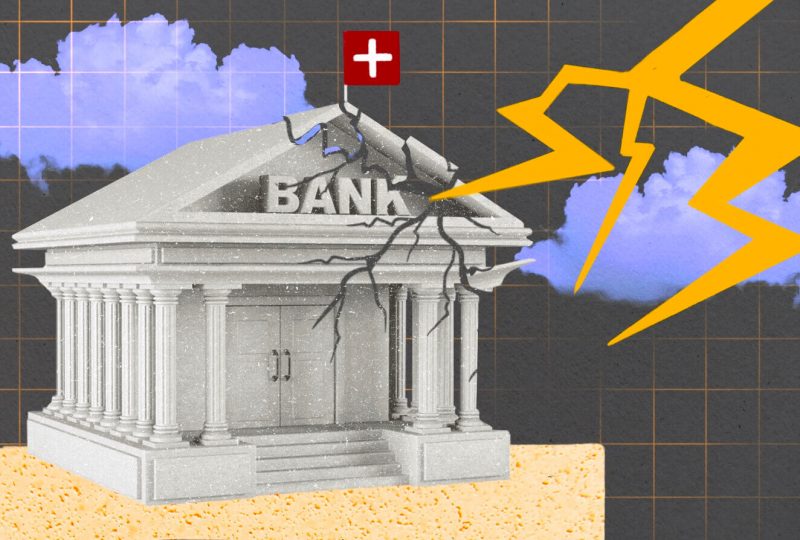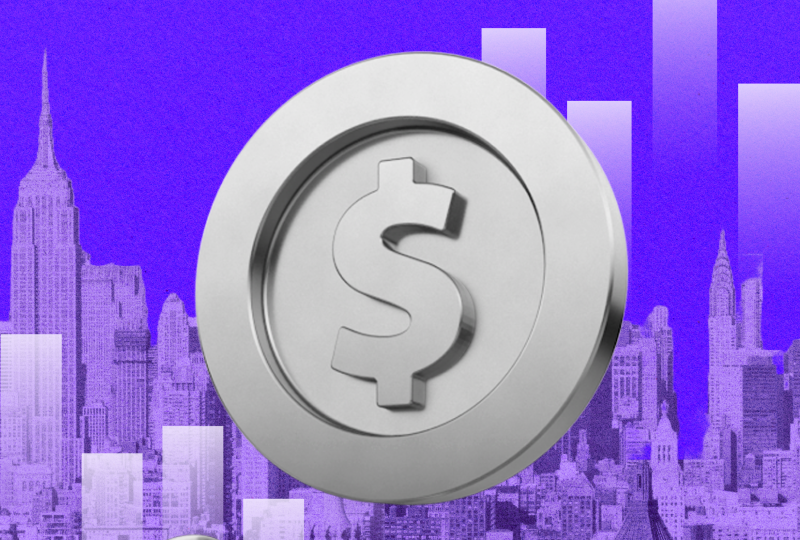Singapore’s Wary Crypto Embrace Leaves Top Mogul in the Cold
Jan 12, 2022

A subsidiary of the world's largest cryptocurrency exchange has retracted its proposal to operate a bourse in Singapore. Zhao, the cryptocurrency industry's wealthiest man with an estimated worth of over $90 billion, moved to Twitter to explain that the affiliate's investment in another exchange – one that was regulated – rendered the application "somewhat redundant."
As it turns out, the other exchange is licensed to trade a variety of assets, including private company shares and tokenized assets, but not cryptocurrency. More crucially, the true reason for the withdrawal was that Binance's affiliate did not match Singapore's anti-money laundering and counter-terrorist funding standards, a person familiar with the case said following the withdrawal last month. Binance rejects this, stating that the application was withdrawn for strategic and commercial reasons.
Binance is just one of a slew of businesses that have been fascinated and then disillusioned by Singapore's two-pronged approach to crypto legislation. On the one hand, the city-state promotes cryptocurrency innovations and has established a regulatory framework for the business, whilst other nations, such as China, have chosen outright prohibitions. On the other hand, it does not want its people to suffer losses due to speculation, is concerned about criminal dangers, and is quite selective about who it admits.
"A very clear line has been established in the sand," said Lena Ng, a partner at Clifford Chance who advises cryptocurrency players in Singapore and elsewhere.
Regulators worldwide are paying attention to the cryptocurrency business, with US Securities and Exchange Commission Chair Gary Gensler referring to it as the "Wild West" and stating that it requires tighter control. Singapore's case demonstrates that the regulatory procedure would not always be straightforward for the enterprises involved, even when states profess support for the concepts and technology.
In an October interview with Bloomberg, Ravi Menon, managing director of the Monetary Authority of Singapore, the country's central bank and financial regulator, spelled out Singapore's strategy. The city-state sees potential in areas such as decentralization, smart contracts, and encryption and wants to be in a good position if these technologies become vital to our economies, he explained. However, there are "severe hazards," he added, citing money laundering and terrorism funding as examples.
"It may lead nowhere, or it could lead to a great deal of danger and turmoil, or it could lead to a really positive conclusion for the economy and society," Menon said of the cryptocurrency phenomena. "We need to think about it in terms of scenarios and prepare for any of the possible outcomes."
Singapore's Payment Services Act took effect in January 2020, establishing a framework for regulating everything from Bitcoin trade to pay with tokens. According to the law, MAS grants so-called digital payment token licenses to cryptocurrency enterprises that successfully complete the application procedure.
The act's passage aided in the entrance of cryptocurrency players into the Southeast Asian metropolis.
Crypto.com, the world's fourth-largest cryptocurrency bourse, relocated its headquarters from Hong Kong in 2021 and is seeking a license. A subsidiary of Huobi Group, which operated China's largest cryptocurrency exchange prior to last year's blanket ban, is also applying, and its co-founder Du Jun has lived in Singapore for the previous two years. Zhao from Binance also had been based in the city-state for the previous two years.
Around 170 companies applied in all, including Coinbase Global Inc., the exchange that went public in the United States last year, a watershed event for the crypto business. Tyler and Cameron Winklevoss's bourse, Gemini Trust, is also among the applicants. Companies that have submitted an application are granted a grace period during which they may operate in the city until the regulator states otherwise or they withdraw.
However, over 100 applications have been withdrawn or denied. Most did not fit Singapore's requirements for stopping illegal financial flows, according to a source familiar with the situation.
Indeed, just four licenses are known to have been issued, including Independent Reserve, an Australian cryptocurrency exchange, and the brokerage arm of Singapore's largest bank, DBS Group Holdings Ltd. Coinhako, a local startup, also announced that it had gotten in-principle clearance.
"We don't need 160 of them to set up shop here," Menon stated in an October interview. "Half of them are capable of doing so, but to extremely high standards."
Singapore is striking a balance between China, which banned all cryptocurrency transactions in September and pledged to put an end to illegal crypto mining, and El Salvador, which approved Bitcoin as legal payment the same month.
This is a strategy that is comparable to that of other Asian financial hubs.
Hong Kong, Singapore's main rival for the title of the region's top financial center, regulates crypto exchanges under an "opt-in" regulatory scheme, which means businesses can request to be regulated. It has granted approval to a single business. The authorities are now enacting legislation to establish a new licensing structure.
As early as 2017, Japan certified 15 businesses as bitcoin exchange operators, making it one of the pioneers of cryptocurrency regulation. As of December, it has licensed 30 such companies.
As of Dec. 23, South Korea had accepted registrations for 24 cryptocurrency trading exchanges to operate in the nation. Only four of them are permitted to provide trading services.
Singapore's low-tax environment and lack of a capital gains tax have advantages for becoming a crypto hub, according to Ulisse Dellorto, Asia-Pacific head of blockchain analytics firm Chainalysis. Additionally, the city-state has an advantage in terms of ease of doing business, robust infrastructure and connectivity, and its status as a financial center, according to Gerald Goh, co-founder and Singapore CEO of Sygnum, which operates a Swiss digital asset bank and an asset manager in the Asian city.
According to Chia Hock Lai, co-chairman of the Blockchain Association Singapore, which promotes blockchain technology, the island already has 350 enterprises focused on blockchain and cryptocurrencies. This equates to around 3,500 jobs, he said, based on a typical staff size of ten.
However, the story of Binance, which produced at least $20 billion in revenue last year, demonstrates that expanding at any cost is not always the best strategy.
The writing was already on the wall for Zhao's business in September, when Singapore's regulator listed Binance.com, the group's primary platform, to its Investor Alert List of unregulated firms that may have been mistakenly interpreted as licensed or regulated by the Monetary Authority of Singapore. It instructed Binance Holdings to cease delivering regulated services in the city-state, leaving just the Singapore entity to serve people.
Binance then withdrew from the process in December, over two years after it applied.
"This will definitely not harm Singapore's status as a crypto center," said Neal Cross, a financial technology entrepreneur, and former DBS chief innovation officer. "To be fair, it may accentuate it. Cryptocurrency is still in its infancy and has a long way to go before it becomes a significant participant in our wealth portfolios, but it must do so in a firm but fair environment."
Binance's representative stated that the company would continue to collaborate closely with partners and government organizations in Singapore to foster the growth of blockchain and cryptocurrency projects.
The World's Greatest Cryptocurrency Fortune Began With a Casual Poker Game
Cross stated that being open to crypto will assist the financial services business in the future since blockchain and decentralized finance are expected to account for a sizable portion of the financial services industry. When asked about potential disadvantages, he stated that there are two.
"One is the collapse of such exchanges," he explained, as well as "the losses incurred by mom and pop investors as these aren't government-guaranteed." "Secondly, because cryptocurrency is notoriously difficult to monitor, it may open up new avenues for money laundering, but I believe the MAS is on top of this with their existing legislation."
Menon of the MAS has stated several times that Singapore does not want its citizens gambling on Bitcoin and other risky cryptocurrencies.
"MAS opposes the use of cryptocurrencies or tokens by ordinary investors," he stated in a December address. Prices of cryptocurrencies "are not based on economic fundamentals and are vulnerable to wild speculative movements." Investors in these tokens could face huge losses."
Bitcoin, the largest cryptocurrency, more than quadrupled in value between January and November of this year before plunging for the remainder of the year. It fell 74% in 2018. On Wednesday, the digital token fell less than 0.1 percent to trade at $42,649.75.
Individuals seeking digital investment possibilities should exercise prudence and engage "responsibly," Communications and Information Minister Josephine Teo said on Jan. 11.
Singapore's determination to safeguard its citizens from cryptocurrency trading matches its approach toward its two casinos, which have been a huge economic success but have been met with fears about how gambling will affect its citizens. As a result, the government charges citizens and permanent residents a daily admission fee of S$150 ($111), while foreigners enter for free.
Singapore Warns the Public Against Cryptocurrencies as the World Accepts Bitcoin
To be clear, not everyone supports Singapore's cryptocurrency policy.
"Binance's departure sent a message that Singapore does not welcome the big guys," said Anndy Lian, chairman of cryptocurrency exchange BigONE Exchange. "Many individuals are flocking to Dubai because they see Singapore as unwelcoming and are unaware of the true causes."
Binance has also shifted its focus to the Middle East, striking a collaboration deal with the Dubai World Trade Centre Authority last month to collaborate on the emirate's planned virtual asset ecosystem. Additionally, it received preliminary approval from Bahrain's central bank to operate as a crypto-asset service provider in the country. And it promoted Richard Teng, a high-profile appointment who joined Binance's Singapore affiliate as CEO in August, to manage the global entity's Middle East and North Africa operations.
Meanwhile, back in Singapore, a billboard for Crypto.com flashed a bright message at a popular intersection on the Orchard Road retail area. It stated, "Fortune favors the bold."
That may be true, or it may also be true that caution is rewarded. The trick, according to Huobi Singapore CEO Edward Chen, is to get the combination exactly right.
"It is critical to strike the proper balance between regulation and risk mitigation while preserving a competitive edge," Chen explained.




